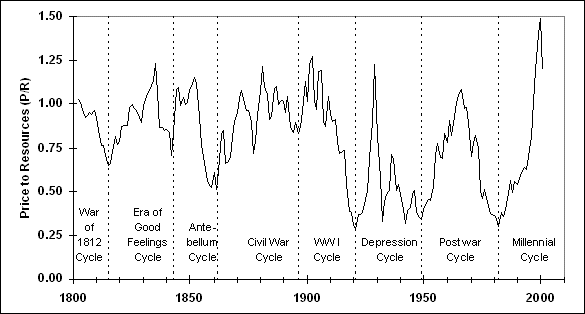Oops, hit the quote instead of the edit button, better get another cup of coffee...
georgeob1 wrote:Roxxxanne wrote: And we might be experiencing a cyclical bull market within a secular bear market that began in 2000 and will end sometime in the next twelve years. (secular bear markets can roar up to twenty years or so)
Interesting possibility, if you assume the collapse of the dot com bubble in 2000 was the inaugriation of a new long-term secular decline. I don't interpret the situation that way because I don't see any continuously acting trends. The continuing effects of globalization plus (in the U.S.) the stimulus of tax cuts softened the blow and gave us a recovery that started in 2004 and quickly restored markets to their previous heights. Now we can see increasing growth in a Europe that has also begun to liberalize labor markets and reduce tax burdens.
I don't deny that a long-term decline could occur sometime soon, I just don't see any connections with 2000.
If you study the market, there are clearly recognizable secular trends, bear and bull, without a doubt, year 2000 (it wasn't just the dot.com bubble, the previous secular bull preceded that and other factors ended it) was the beginning of the the current or last secular bull market.
So my question to you is when did the last secular bear market end? If we are still around a few years from now, we can see if you prove to be right.
Do you listen to Money Talk, Bob Brinker on KGO BTW? With his help and my own intuition, I was able to double and even triple some of the little bit of money I had over the last ten years and I never bought a single stock.
(I had quite a few shares of T, that I had in my 401k, that I sold out at the top in 2000 while my associates lost up to 80% of their 401k portfolio.)
I was largely out of the market on 9/11, then got back in right after (QQQQ, VTSMX) then got back out recently, again near the top.
I am astounded that you herald spending money that we don't have to stimulate the economy:
Quote: the stimulus of tax cuts softened the blow and gave us a recovery that started in 2004
The quails will come home to roost. This secular bear ain't done yet. Stay tuned.
